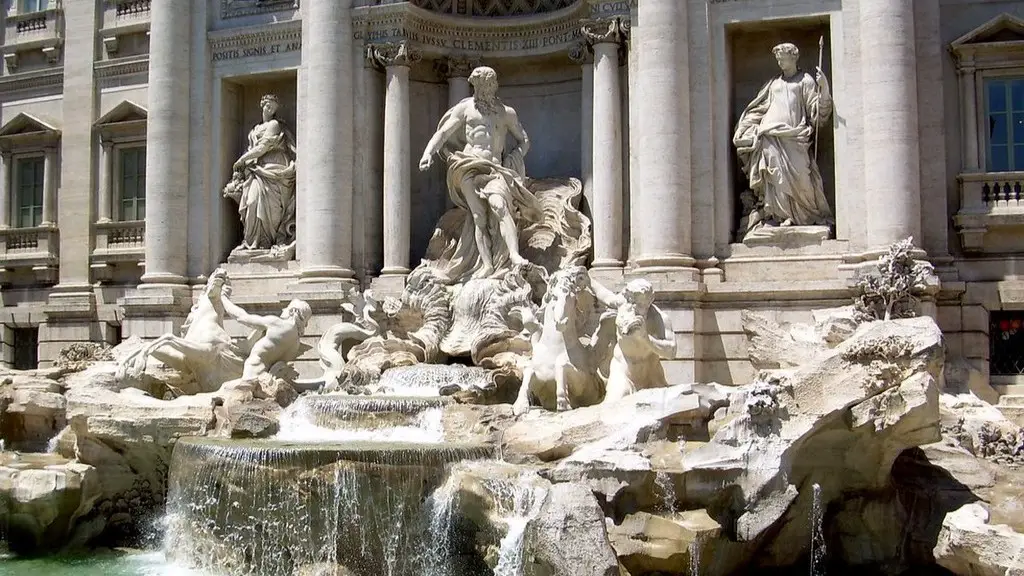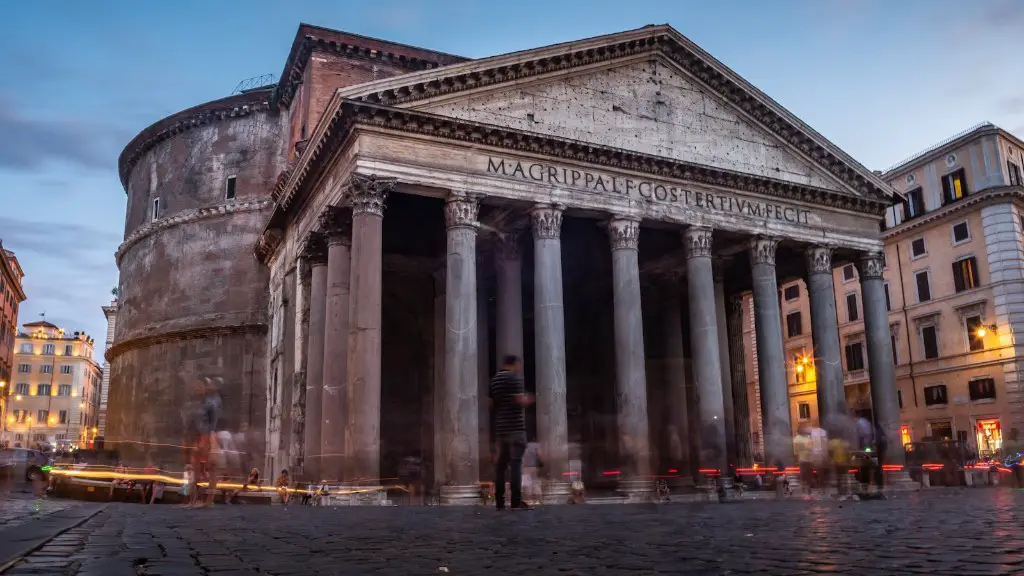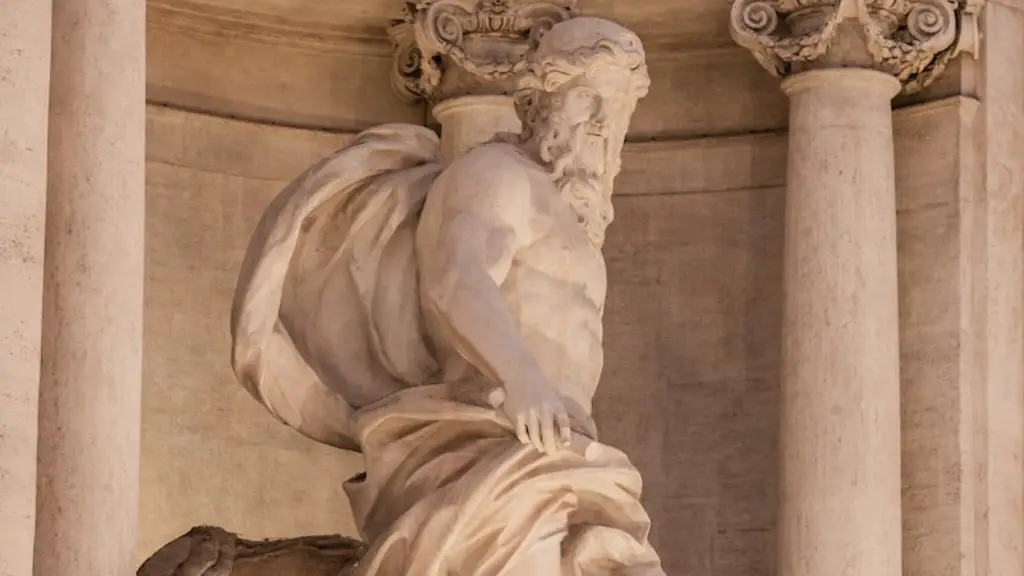There are countless stories of law enforcement throughout history, but none more intriguing and well-known as the ancient Romans. Ancient Rome was a hub for law enforcement, as it created its own sets of laws that were to be implemented, obeyed, and enforced. The first sets of laws that were created by the Romans were called the Lex Duodecim Tabularum, or the “Twelve Tables.” This set of laws was the first of its kind and laid out the foundation for the modern-day criminal justice system. It laid out twelve points of laws that defined different criminal acts and the punishments that went along with it.
In terms of who enforced the laws in ancient Rome, there were a few players that held positions of authority when it came to law enforcement. The most famous of these positions were the magistrates. The magistrates were elected officials who were held to a certain standard of law enforcement and were given the authority to enforce the laws that were established in Roman society. This allowed them to act as judges and to issue punishments for any violations of the law.
Another important position in ancient Rome was that of a Praetor. The Praetor was similar to a magistrate in that they were elected to oversee the legal proceedings and enforment of the laws. They, however, had more authority than a magistrate as they were in charge of setting the punishments for violations of the law and they also had the ability to interpret the laws and to make decisions on cases.
In addition to the magistrates and praetors, there were also other law-enforcement officials that had special roles in Rome. These included the Vigiles, who were responsible for keeping the peace at night, and the Lictor, who were responsible for apprehending criminals and punishing wrongdoers. The Lictor was also responsible for upholding public morality and keeping public order by punishing any form of public misconduct.
Furthermore, there were also several advisory and advisory-like roles that were filled by the citizens of Rome, including the senate and the citizens assemblies. The senate was a body that was appointed to advise the magistrates and praetors on matters of law and to ensure that the laws were being enforced and followed properly. The citizens’ assemblies were also important, as they were the ones that had the power to elect the magistrates and praetors and to create or change laws as they saw fit. Since the senate and citizens’ assemblies held so much power, they were considered a sort of “court of last resort” in ancient Rome and were able to override any laws that were decided upon by the magistrates and praetors.
The Legislation of Ancient Rome
When it comes to the legislation of ancient Rome, it was much different than the modern legal system that we have today. The Romans were more inclined to allow magistrates and praetors to make their own interpretations of the law, so it wasn’t a strict, rigid system of rules like it is today. This allowed for more interpretations of the law, as well as more subjectivity. Additionally, there were also different levels of punishment based on the severity of the crime and the amount of damage it caused to society. This gave the law enforcement officials more flexibility in how they handled different cases.
The Roman legal system was also unique in the way that it allowed citizens to appeal their sentences and rulings and to take their cases to higher courts if they felt as though they had been wronged. This allowed citizens to have some form of legal representation and recourse in cases that they felt were unfair or unjust. Furthermore, if a criminal was found guilty and sentenced, they would be subject to appeal by another magistrate or praetor. This was important in that it prevented magistrates and praetors from taking advantage of their positions of power and issuing extreme sentencing for lesser offenses.
The Roman legal system was highly respected and admired by many other cultures throughout its existence, and its influence can still be seen in our modern criminal justice system today. It was a system that prided itself on fairness and justice and was one of the first systems of law enforcement to allow for appeal and legal representation. Its method of punishing criminals based on the severity of their crimes can also still be seen today, as well as its more relaxed interpretation of the law. All in all, the Roman legal system was one of the most influential of its time.
The Influence of Roman Law on Modern Legal Systems
The ancient Roman legal system has had a lasting impact on modern law enforcement. Many of the ideas and laws that the Romans had in place are still used today and can be found in our legal system. From the innovations of jury trials, to the methods of conducting legal proceedings, to the punishments for certain offenses, all of these can still be seen today in some way in modern legal systems.
In terms of the punishments that were handed out, some of them are still very similar to the ones that are used today. For example, offenders who break the law can still find themselves in jail or prison, while those who commit more serious offenses can still be given harsher sentences. There are also fines that can be imposed and restitution that can be ordered to be paid to victims, which is something that has been around since ancient Rome.
Furthermore, the Roman legal system also had its fair share of criminal justice innovations, and some of these are still seen today in modern legal systems. For instance, the concept of “innocent until proven guilty” has its origins in Rome, as does the concept of double jeopardy and the right to legal counsel when facing charges. All of these are still used in modern-day legal systems and are important elements in the protection of citizens’ rights and liberties.
The Impact of Ancient Rome on Current Legal Systems
Today, the influence of ancient Rome can still be seen in our legal systems. The concepts and principles that were used during the Roman era can still be seen in modern-day legal systems and still serve as a foundation for the laws and order that we have. The legal systems of Rome weren’t perfect, but they served as an important early example of how laws and order can be enforced in an organized, logical way.
Roman law also had its share of flaws, as it was highly subjective and could easily be taken advantage of if the right people were in power. However, despite its shortcomings, it’s still an important part of our legal history and has had a lasting impact on the laws and punishments that we have today. It’s a testament to the power of a robust legal system and the idea that justice should be swift and sure.
The Legacy of Ancient Rome
The ancient Roman legal system is something that has had a lasting influence on our modern legal systems, and is something that continues to shape and shape our laws as we move forward into the future. From its ideas of fair trials and punishments, to its understanding of jury trials, to its emphasis on legal representation and appeals, the Roman legal system still has an important place in our legal systems today.
For thousands of years, the Roman legal system has been studied and analyzed by people throughout the world and its influence can still be felt. It’s a testament to the power of a legal system and the importance of enforcing laws and order in a just and fair way. The impact of the Roman legal system is something that has left an indelible mark on modern law enforcement, and something that will continue to shape our legal systems for years to come.
Who Enforced Laws in Ancient Rome: Modern Conclusions
Overall, the Roman legal system is something that has left a lasting impression on the world and is something that still influences our legal systems today. From its emphasis on fairness and justice, to its idea of appealing sentences and convictions, the Roman legal system has had a tremendous influence on our modern legal systems. The presence of law enforcement in ancient Rome was something that was highly respected and admired and is still seen today as a symbol of justice and order.
In conclusion, the Roman legal system is something that has been studied for thousands of years and is still something that serves as a foundation for many of our current practices today. It was highly advanced for its time and laid the groundwork for modern legal systems that are still in place today. The legacy of the Roman legal system is something that should not be forgotten, as it has profound implications on how we treat one another and how laws are enforced today.




